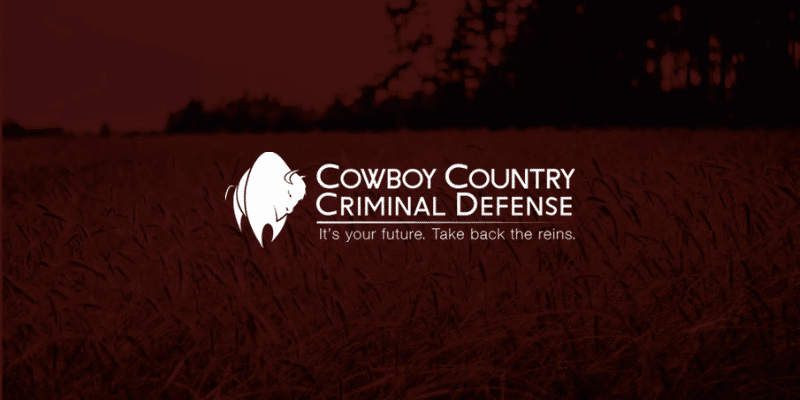CONSULT A SOPHISTICATED AND ACCOMPLISHED WYOMING CRIMINAL DEFENSE LAWYER FOR ADVICE IF YOU HAVE CONCERNS ABOUT PUNISHMENTS FOR WHITE-COLLAR CRIME
White-collar crime is under the microscope more now than ever before. Federal, state, and local law enforcement agents work together closely to investigate and prosecute white-collar crimes.
Incredibly, the United States Attorney for the District of Wyoming estimated that prosecutors dedicated 8% of their workload to investigating and prosecuting white-collar criminals.
The figure does not account for all the white-collar criminal cases pursued by Wyoming state prosecutors. Moreover, the general public takes a harsh stance on white-collar crime and often wants people convicted of white-collar crime to receive severe punishments.
You are undoubtedly in a tough spot if you are under indictment or were charged with white-collar crimes. You have options, but you must understand the white-collar crime punishment severity you face before deciding which course of action you should take.
Having a tough, aggressive, and knowledgeable Wyoming white-collar criminal defense lawyer by your side could make the difference for you and your future.
WHAT IS WHITE-COLLAR CRIME?
White-collar crime is a generic term used to describe a broad range of criminal offenses. White-collar crime, by definition, is non-violent. Moreover, financial gains often motivate people who allegedly commit white-collar crimes. Examples of white-collar crime include:
- Insurance fraud,
- Tax fraud,
- Tax evasion,
- Credit card fraud,
- Theft,
- Internet fraud,
- Money laundering,
- Bankruptcy fraud,
- Embezzlement,
- Computer fraud,
- Internet crimes,
- Bribery,
- Ponzi schemes,
- Healthcare fraud,
- Mortgage fraud, and
- Investment fraud.
Other crimes may fall under this broad range of offenses described as white-collar by the United States Attorneys Office for the District of Wyoming. Both local and federal authorities can investigate and prosecute white-collar crimes.
MOTIVES FOR COMMITTING WHITE-COLLAR CRIME
Typically, the white-collar criminal is a business person who has no record but has some sophisticated knowledge of their business. Their in-depth understanding of the inner workings of their industry helps them clandestinely conceal their fraud.
People commit white-collar crimes because they see an opportunity to steal money and not get caught. Commonly, people begin stealing from their employers, organizations, or individuals because of greed, jealousy, or avarice.
Some might have financial problems as a result of gambling or substance abuse. Whatever the motive, white-collar crime can have a disastrous effect on a person’s business.
WHITE-COLLAR CRIME JAIL SENTENCES
Under Wyoming state law, theft, which included embezzlement, is punishable by a maximum of 10 years in prison for a felony. Prosecutors can pursue felony charges if the stolen property has a value exceeding $1,000. Otherwise, the crime is a misdemeanor punishable by no more than six months in jail and a fine of no more than $750.
The potential sentences vary depending on the type of white-collar crime. Generally, the maximum penalty for a white-collar felony in Wyoming is 10 years, but exceptions could apply to your case. Additionally, judges can stack prison sentences and order that you serve them “from and after.”
HOW DO WYOMING JUDGES DETERMINE WHITE-COLLAR CRIME SEVERITY?
At one time, people convicted of white-collar crimes received little to no punishment. That is no longer the case. Many people convicted of white-collar crime, including celebrities and well-known people, have spent time behind bars for convictions classified as white-collar crimes.
Not only did they end up in jail, but they had to pay enormous fines and participate in post-release supervision services.
Judges must consider several factors when determining an appropriate sentence for a convicted offender. Most people who face white-collar crime allegations have no prior criminal history.
Sentencing judges must consider the facts alleged by the prosecution. More egregious cases will convince judges to impose the harshest sentences. These sentences could include maximum prison time, probation, and a restitution order.
A sentencing judge may exercise leniency if the accused expresses remorse and offers to repay the stolen money. However, most of the money is typically gone by the time law enforcement officers complete their investigation. Typically, people convicted of white-collar crimes cannot pay full restitution because they stole more than they could ever repay.
Federal and state prosecutors may seek to have the accused forfeit any proceeds of white-collar crime. Asset forfeiture disgorges the ill-gotten gains from the accused. Volunteering to forfeit assets acquired by fraudulent means could convince a sentencing judge to impose a lighter sentence.
COLLATERAL PUNISHMENTS FOR WHITE-COLLAR CRIME
Anyone convicted of a white-collar crime might have difficulty regaining employment. Employers will find it difficult to trust someone convicted of fraud. Additionally, a professional licensee such as a lawyer, doctor, pharmacist, or broker will assuredly face professional discipline.
The social stigma associated with a white-collar criminal conviction should not be underestimated. Losing the ability to work in your professional industry can shatter your stature in the community.
Additionally, any person who is not a citizen of the United States and receives a conviction for a white-collar crime faces denial of naturalization rights, potential deportation, and other immigration consequences.
AVOID PUNISHMENTS FOR WHITE-COLLAR CRIME WITH A SKILLED WHITE-COLLAR CRIMINAL DEFENSE LAWYER
If you are the subject of a police investigation or face white-collar criminal charges, you must act immediately. Engaging a highly skilled and top-rated Wyoming criminal defense lawyer to represent you could help you avoid any white-collar crime jail sentence.
Call attorney Jeremy Hugus and his team with Cowboy Country Law today at 307-333-7884 to learn more about your potential defenses and how to avoid punishments for white-collar crime.

